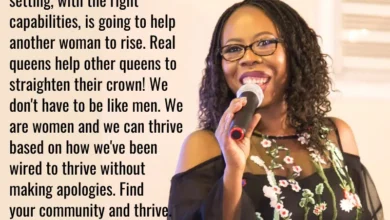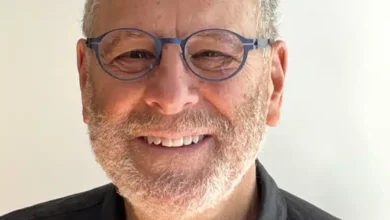Spotlight of the Week: Zuriel Oduwole – The Young Advocate Changing the World

At just nine years old, Zuriel Oduwole embarked on a journey that would transform her into one of the most influential young advocates for girls’ education and social development. Now in her twenties, she has built an international movement dedicated to empowering young girls, speaking at global platforms, and engaging with world leaders to drive change.
Zuriel’s story began with a school competition for National History Day in the U.S., where she chose to highlight a lesser-known revolution in Ghana. Her decision to create a documentary set her apart, leading her to travel to Ghana and witness firsthand the struggles of young girls out of school. That experience ignited a passion in her to advocate for education as a fundamental right for all girls.
At just 10 years old, she launched Dream Up, Speak Up, Stand Up, an initiative aimed at encouraging girls across Africa and beyond to stay in school and pursue their dreams. Through this program, she has spoken to nearly 50,000 young people across 21 countries, countless parents, and 35 world leaders, urging them to prioritize education for girls.
Zuriel’s efforts have not gone unnoticed. In 2017, she was honored by U.S. Secretary of State John Kerry for her contributions to social development. She has been named among “33 Women Who Changed the World” alongside influential figures like Shonda Rhimes and Janet Yellen. She has also been featured on major global media outlets, including CNN, BBC, Bloomberg, and The New York Times.
Her impact extends beyond advocacy. As a UN Climate Neutral Champion, she speaks with world leaders about how climate change affects education, especially in coastal nations. She has engaged with the Prime Ministers of Jamaica, Samoa, Vanuatu, Tuvalu, Fiji, and the President of the Marshall Islands on this critical issue.
Zuriel is not only an advocate but also a filmmaker. At just 12 years old, her documentary The 1963 OAU Formation earned her recognition as the world’s youngest filmmaker in Forbes Magazine. Her third film, A Promising Africa, was screened in five countries. She has since produced and self-edited several other films that highlight positive stories from Africa, countering the often-negative narratives seen in mainstream media.
In addition to making films, she has taken it upon herself to teach young, unemployed, or out-of-school girls across Africa the basics of filmmaking. Her first pilot class in Namibia, conducted when she was just 13, led one of her students to create a documentary that was later picked up by local TV stations, proving the power of skill-sharing and mentorship.
Zuriel’s influence spans continents, having spoken at conferences and institutions in Paris, Johannesburg, Tokyo, Los Angeles, Cairo, London, Accra, and many more. She has been invited as a speaker by investment banks, telecom companies, governments, and prestigious universities, including Columbia University.
Her message remains consistent: Girls can achieve anything if given the opportunity to learn and grow. She embodies the belief that success is not about never failing but about rising each time you fall. She credits former Liberian President Ellen Johnson Sirleaf’s words as a guiding principle in her life:
“If your dreams don’t scare you, they’re not big enough.”
Despite all her accomplishments, Zuriel never imagined being nominated for one of the world’s most prestigious awards, the Nobel Peace Prize. Nominated by the Norwegian Nobel Committee, she joins a distinguished list of individuals recognized for their contributions to peace, education, and human rights.
Though she is unsure which category she has been placed in or the specific work being celebrated, one thing is clear: her influence is undeniable, and her mission is changing lives. The winners will be announced in early October, with the official award ceremony taking place on December 10, marking the anniversary of the death of Alfred Nobel.
At just 22, Zuriel Oduwole is proving that education is not just a tool for change, it is a weapon against injustice, inequality, and oppression.





